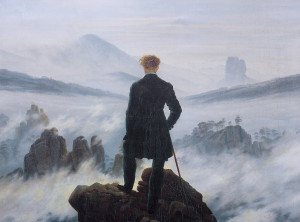 In the course of reading around a story about how the Portland Public Schools board has unanimously approved a resolution aimed at “eliminating doubt” about climate change and its causes in schools, I came across this quote from Nietzsche (It’s from Daybreak: Thoughts on the Prejudices of Morality):
In the course of reading around a story about how the Portland Public Schools board has unanimously approved a resolution aimed at “eliminating doubt” about climate change and its causes in schools, I came across this quote from Nietzsche (It’s from Daybreak: Thoughts on the Prejudices of Morality):
Christianity has done its utmost to close the circle and declared even doubt to be sin. One is supposed to be cast into belief without reason, by a miracle, and from then on to swim in it as in the brightest and least ambiguous of elements: even a glance towards land, even the thought that one perhaps exists for something else as well as swimming, even the slightest impulse of our amphibious nature — is sin! And notice that all this means that the foundation of belief and all reflection on its origin is likewise excluded as sinful. What is wanted are blindness and intoxication and an eternal song over the waves in which reason has drowned.
That’s rather fine.

This is pervasive. Heck, half of Western philosophy is predicated on the assumption that to doubt something, or to merely raise the possibility of doubt, is sufficient criticism to render an idea or proposal problematic and unsatisfactory. In this view, doubt, rather than being a guard against falseshood, is seen as a monster to be slain, with irrational nihilism as the only alternative.